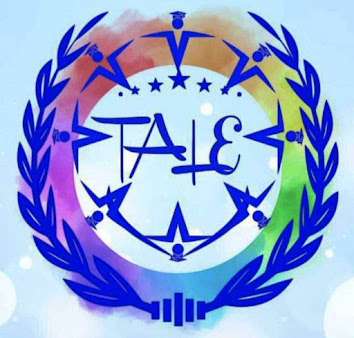4.
Theme of Racism in Othello.
Ans.
Racism has been one of the most devastating matters of the human being from the
very beginning of the history, and it has been a topic of great debate and
discussion since then. This severe fact does not have a special time and place.
Actually, every society that has inhabited the earth has been virtually
affected by this dispensable problem, racism. As all the important affairs of
human being, the issue of the race is also one of the most significant themes
that have a huge place in world- wide literature. Generally, most of the eras
in the literature world have got their share of pleasure from this subject but
Elizabethan Era was one of the most obvious times and Elizabethan Society was
one of the most obvious places that discrimination of race was felt. The
fascinating play of Shakespeare, Othello, is one of the plays that are shaped
by the flaming effects of Racism.
The
racial conflict in Othello is evident from the very beginning of the
play.Othello is depicted as an 'other' or outsider from the beginning of the
play. Within the opening lines of the play, we see how Othello is distanced
from much of the action that concerns and affects him. He is ambiguously
referred to as "he" or "him" by Roderigo and Iago for much
of the first scene and when they do begin to specify just who they are talking
about, they use racial epithets, not names.
Iago,
the vilest character in all of Shakespeare's characters, uses racism in the
opening scene of the play as a spark to inflame Desdemona's father, Senator
Brabantio, against Othello..After Iago and Roderigo raise a clamor outside
Brabantio's house late one evening, the senator awakens and comes to a window.
Iago then uses vulgar animal imagery to slur Othello, telling Brabantio that
the black Moor has seized his greatest treasure, his daughter, and at that very
moment is defiling her. Iago shouts to Brabantio -" ... now, very now, an
old black ram/ Is tupping your white ewe. Arise, arise!"
There
is an obvious racism in this quote. When Brabantio reacts with incredulity,
Iago replies with a metaphor that this time compares Othello to a horse. The
use of animal imagery is used to help convey Othello as a monster and the
choices of animals shows the underlying racism: "Old Black ram" and
"Barbary horse". The references to witchcraft and the devil also help
to emphasise Othello's differences: "The devil will make a grandsire of
you", "the beast with two backs". The playwright uses these characters
to paint a picture of Othello as the embodiment of the black stereotype held by
people at this time, labelling him as "different" to everyone else.
There is a clear theme of racism throughout, one which was firmly embedded in
the Venetian society which rejects the marriage of Othello and Desdemona as
erring, 'against all rules of nature'.
The
racial conflict becomes clearer when we consider of Iago's 'motiveless
malignity' against Othello. Iago seems to have few motives for his devious
actions. Although he resents Othello being promoted before himself, it seems
that from his speech that the thing he hates most about Othello is the colour
of his skin. Because of this he uses unintelligent and colloquial racism to
insult Othello. He refers to Othello as, "Thick lips,".
Although
"jealousy" is often offered as Othello's "tragic flaw," but
that emotion is not self-creating. Rather, it stems from a psychology of
inferiority. The thing that fuelled his jealousy was his belief that he is
black and Desdamona is white. That he is unfit to retain her attention for
long. Thus Jealousy and racism are both inter-connected.
Consequently,
the unavoidable and destructive effects of racism change lives of Othello and
Desdemona deeply. It is observed that a society having the prejudice of racism
can restrain love and sometimes there cannot be the limitation of racist people
at destroying the people's happiness. Iago's bad character development
progressing on the way of damaging Othello with feeling of racism and even
dedicating himself to working under the devastating power of the racism is
experienced. Othello cannot spread the clouds in front of his own eyes, and
insist on being unaware of Iago's step by step poisoning of him against his
wife.
Essentially,
Othello has resentment of his roots and Iago is already aware of this and it
provides him to ruin Othello's life. Othello's psychology is affected by his
race and he has the feeling of isolation. This is the most dependable arm that
Iago has and the gun which triggers the thought that as others threat him as
inferior, his wife can also cheat him. He becomes so blind with manipulations
of villain Iago that he prepares the death of his faithful Desdemona and his
own destruction.
(Collected and assembled from internet)
(Collected and assembled from internet)












Thank u a lot...
ReplyDelete